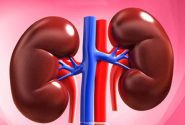به گزارش پایگاه خبری تحلیلی تسریر، به نقل از هلث دی نیوز، چاقی یک دلیل کلیدی برای رد پیوند در بیماران کلیوی است.
دکتر «آنیل پرامش»، محقق ارشد از دانشکده پزشکی دانشگاه تولان در نیواورلئان، گفت: “جراحی کاهش وزن نه تنها به کاهش وزن بیماران تا حدی کمک می کند که بتوانند با خیال راحت پیوند دریافت کنند، بلکه به موضوع گسترده تر نابرابری های مراقبت های بهداشتی، به ویژه بر افراد سیاه پوست و کم درآمد می پردازد.”
محققان این مطالعه، از ژانویه ۲۰۱۹ تا ژوئن ۲۰۲۳، ۱۸۳ بیمار مبتلا به بیماری کلیوی در مرحله نهایی را دنبال کردند. ۳۶ مورد تحت عمل جراحی کاهش وزن قرار گرفتند و سپس ۱۰ نفر پیوند کلیه دریافت کردند.
به طور متوسط، بیمارانی که هر دو جراحی را انجام دادند، در هنگام پیوند، ۲۷ درصد کاهش در شاخص توده بدنی داشتند. آنها همچنین کنترل بهتری بر فشار خون بالا و دیابت داشتند. با این دستاوردها، چشم انداز پیوند به طور قابل توجهی بهتر شده است.
این یافته ها در ۱۲ مارس در Journal of the American College of Surgeons منتشر شد.
پارامش در بیانیه خبری کالج جراحان آمریکا گفت: «ما مشاهده کردیم که جراحی چاقی فقط برای کاهش وزن نیست، بلکه به طور قابل توجهی سایر بیماریهای جدی مانند دیابت، فشار خون بالا و آپنه خواب را بهبود می بخشد.»
در حالی که این برنامه مسیری رو به جلو برای بیمارانی که در غیر این صورت واجد شرایط پیوند تلقی می شدند، ارائه می دهد، پارامش خاطرنشان کرد که این برنامه نرخ رهاسازی بالایی دارد. برخی از بیماران قادر به انجام عمل جراحی نبودند، برخی دیگر تمایلی به انجام آن نداشتند.
علاوه بر این، برخی پس از جراحی کاهش وزن، عوارضی مانند فشار خون پایین داشتند.
پارامش گفت: «یافتههای ما نشاندهنده نیاز مبرم به ارتقای آموزش و حمایت از بیمار است و اطمینان حاصل میکند که کاندیدهای بالقوه مزایای جراحی کاهش وزن و نقش آن را در بهبود واجد شرایط بودن برای پیوند درک میکنند.»
Weight-loss surgery may help patients struggling with obesity and kidney failure become eligible for a lifesaving transplant, researchers report.
Obesity is a key reason why some kidney patients are turned down for a transplant.
But weight-loss surgery “not only helps in reducing the patients’ weight to a level where they can safely receive a transplant, but also addresses the broader issue of health care disparities, particularly affecting Black and lower-income individuals,” said corresponding author Dr. Anil Paramesh. He directs kidney and pancreas transplant programs at Tulane University School of Medicine in New Orleans.
Paramesh was part of a study jointly led by specialists in weight-loss and transplant surgery. It followed 183 patients with end-stage kidney disease from January 2019 to June 2023.
Thirty-six underwent weight-loss surgery and 10 then received kidney transplants.
On average, patients who had both procedures had a 27% reduction in body mass index (an estimate of body fat based on height and weight) when they got their transplant. They also had better control of their high blood pressure and diabetes.
With these gains, transplant prospects were significantly better.
The findings were published March 12 in the Journal of the American College of Surgeons.
“We’ve seen that bariatric surgery is not just about weight loss; it significantly improves other serious conditions like diabetes, high blood pressure and sleep apnea,” Paramesh said in an American College of Surgeons news release.
While the program offered a path forward for patients who would otherwise have been deemed ineligible for a transplant, Paramesh noted the program had a high drop-off rate. Some patients were unable to undergo surgery, others were unwilling to do so.
In addition, some had complications such as low blood pressure after their weight-loss surgery.
“Our findings indicate a pressing need to enhance patient education and support, making sure that potential candidates understand the benefits of weight-loss surgery and its role in improving their eligibility for transplant,” Paramesh said.
تسریر مراقب سلامتی شماست!












































































